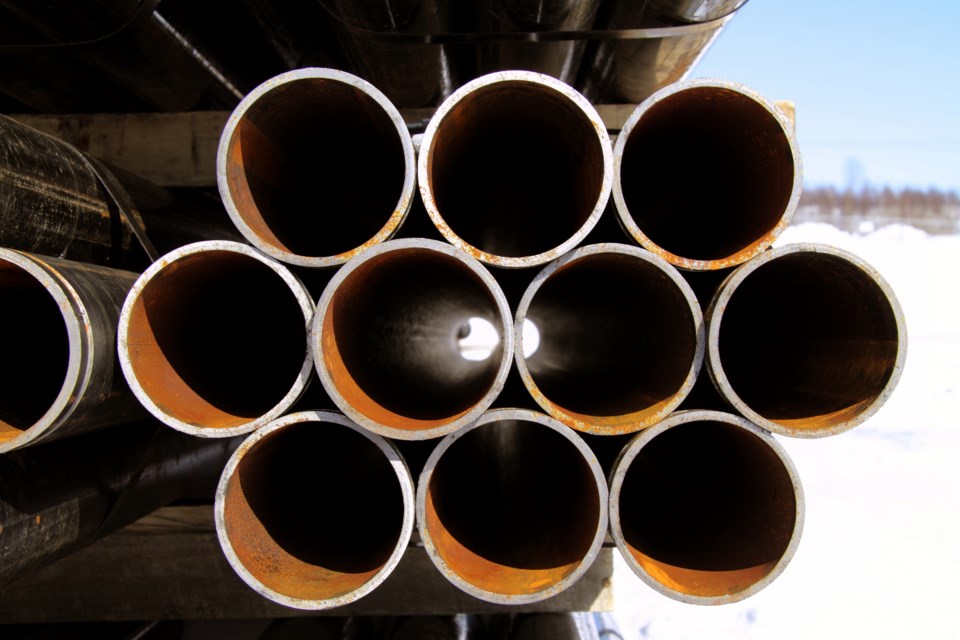It would be a shame to build a hospital and then bulldoze it the day before it opens. It would be worse to repeat the scenario six times. The waste would soar into the billions.
That’s the same amount of money the Canadian government is losing because we don’t have enough pipeline capacity.
Canadian taxpayers lost more than $6.2 billion between 2013 and 2018 because we don’t get full value for our oil, based on numbers from the Parliamentary Budget Officer. We’re losing another $3.6 million a day.
The federal government takes in large tax revenues from the oil industry, but when Canada can’t get full value for its oil because it doesn’t have enough pipeline capacity to access world markets, the government loses out on those production dollars.
If we look at the tally of tax revenue losses from 2013 and look forward until 2023, the number is a staggering $12.8 billion. Those billions could build six new St. Paul’s Hospitals in Vancouver, or nine new Pattullo Bridges or 270 new elementary schools. That lost tax revenue could have paid the full salaries for more than 26,000 new teachers in B.C. for 10 years.
Ottawa could even use the money to give complete federal tax exemptions to everyone in Kamloops for 17 years.
While the NDP-Green coalition government in power in Victoria has picked a fight with Alberta and has tried to block the twinning of the Trans Mountain pipeline, B.C. taxpayers are losing out on the federal tax revenues that would be created by getting full value for our oil on world markets instead of importing our fuel.
The lost tax tally doesn’t include the forgone benefits of thousands of high-paying jobs for Canadians who work in the energy sector.
These numbers only account for direct tax losses to the federal government. The Trans Mountain pipeline expansion would also add tens of millions of dollars every year for B.C. municipal governments along the route and more than $5 billion to the provincial government’s coffers over 20 years.
But the B.C. government continues to get in the way of all these benefits. What are we getting in exchange for this opposition?
We are increasing the number of rail car shipments, with an eight-fold increase in oil shipments by rail since 2012.
As Blair King, an oil spill remediation specialist, explained in his submissions to the Trans Mountain pipeline hearings, pipelines have 4.5 times fewer accidents and spills than oil-by-rail. Any kind of oil spill is bad, but rare pipeline leaks are much easier to deal with than rail accidents.
We aren’t reducing global emissions by blocking our pipelines.
Oil use is increasing around the world, so the question we should all be asking is whether the world should be using Canadian oil or products from other countries.
“If, therefore, Canadian oil comes with fewer GhG emissions than some of the alternatives, such as Venezuelan or Californian heavy crude, isn’t it time Canada started promoting its oil to the world instead of blocking it?” asks Martha Hall Findlay, former Liberal MP and president and CEO of the Canada West Foundation.
In the meantime, we are paying higher prices at the pumps.
More oil products coming from Alberta through the Trans Mountain expansion could help mitigate B.C.’s soaring gas prices, which hit $1.79 per litre in Metro Vancouver, the highest prices in North America.
B.C.’s residents are paying the price for the political opposition to pipelines. B.C.’s politicians claim that additional pipelines could negatively impact the economy and the environment. But the truth is that opposition to pipelines is costing us jobs and is resulting in fewer hospitals and teachers, higher fuel prices and a heavier burden on taxpayers.
By Franco Terrazzano, Alberta Director and Kris Sims, British Columbia Director
This column was originally published in The Province Newspaper



